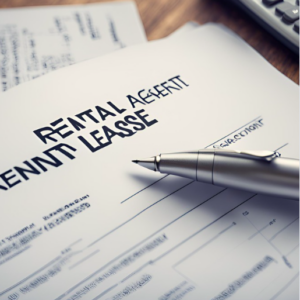
230 L St in South Boston 4 bed 2 bath with 4 parking spots
The right rental question to ask is essential when looking for the right rental for you. Asking the right rental questions can save you from a lot of disappointment and not having the correct expectations. This guide will help you gather the information needed to make a well-informed decision and avoid surprises when looking for the right rental to call home.
1) Why is the tenant Moving and How long have they lived in the unit?
Asking this question I think is one of the best rental questions to ask when you look at the apartment. You want an apartment that has low turnover. The building should also have low turnover. Most data is available online, but it’s still a good question to ask. If a tenant is home, ask them too. I always ask tenants why they’re moving to share their experiences with clients and learn from both positive and negative feedback.

53 Hancock St Beacon Hill 1 bed 1 bath with patio space
2) Does the owner own more than one unit or building and if yes where?
When I do showings, I always tell tenants if the landlord owns property in one area or multiple areas. This helps tenants know if the landlord has other properties for an easier transition if they want to move later. It also allows me to research red flags across the landlord’s properties. Low turnover in multiple buildings suggests the apartment might be a great place to call home.
3) What is included in rent and what are the upfront cost?
This is a great rental question for two reasons. It proves the truth in advertising. When I list properties, I always state the upfront costs in my ads. Renters can ask about these costs again to clarify and request agents to include them in the paperwork. It’s a great idea to ask what is included in the rent. If you decide to apply, request a detailed list of all included items from the agent. This ensures the agent or property manager provides all necessary information, helping you make a confident, well-informed decision.
4) What is the lease term?
Most Boston apartments turn over in June or September, but flexible options are rare. Few offer month-to-month leases. Some provide 3, 6, 9, or 12-month terms ending on dates like May 31 or June 30. Full-service buildings might offer 13 or 14-month leases with discounts, while private landlords prefer 12-month cycles to match common moving periods.. Two-year leases are uncommon due to Massachusetts’ tenant-friendly laws, which favor flexibility for both parties. Rent often trends upward, so landlords prefer shorter leases to adjust rent with rising costs. Ask about 60, 90, or 120-day renewal clauses to help plan if you don’t intend to renew. Private landlords may be more flexible than management companies.
4) What is the Rent increase policy?
It’s crucial to know how often and by how much rent can increase to plan your finances. In Boston, Cambridge, and Brookline, rent increases can be influenced by rising landlord expenses, increased taxes, and building maintenance. Highly desirable areas also see higher rents due to supply and demand. During COVID, many renters left these areas, causing vacancies and lower rents. Now, rents have likely rebounded. If you hear of significant increases, consider this when evaluating a rental. Use rental tools to check if the apartment’s price is higher than normal for the area.
5) What is the security deposit and what are any other fees that could come up during tenancy?
First, every state is different in what is legal for a landlord to charge an incoming tenant and what is not. So consult your local real estate agent or housing board. In the state of Massachusetts, landlords may charge you the following
- First Month Rent
- Last Month Rent
- Security Deposit
- Lock and Key Fee
What can’t a landlord charge you and yes they might try
- Move-in and Move-out fee
- Cleaning fee or deposit
- Late fee for rent
- Pet Fee or Pet Deposit
6) How are maintenance requests handled?
Ask about the process for submitting maintenance requests and the typical response time to ensure prompt issue resolution. Private landlords might prefer a simple call or text, while management companies may use an app, portal, or emergency line. Understand which maintenance tasks you’re responsible for, like changing light bulbs or unclogging toilets, and which to report to the landlord.
7. What is the neighborhood like?
I always advise clients to walk around the area they are considering for a new home. Whether renting or buying, explore the neighborhood and practice your commute before or after touring a unit. For safety information, contact the local police department for a crime report or use an app. As you walk, note local coffee shops, restaurants, dog parks, transit options, and supermarkets. These are essential for making the neighborhood feel like home.
8. Are there any building policies or rules?
- Laundry is a common subject that sometimes has rules or guidelines
- If there is trash removal, there might be specific rules to follow. If you need to put trash out on the street, city or town regulations may require that trash be in actual trash bags and recycled items placed in designated bins on certain days.
- Moving in and Moving out there might be a policy like someone must man the front door when moving in or out You might need to notify the building within a certain time to move in
- Building might require proof of insurance must be provided before moving in
- The building might have storage rules
- The building could have bike storage but require you to register your bike
- If the building has off-street parking the building might require you to complete paperwork prior or obtain a sticker to park in that off-street lot.
 Pet owners might need to walk their dogs in designated areas, keep them on a leash, or use a separate elevator or entrance.
Pet owners might need to walk their dogs in designated areas, keep them on a leash, or use a separate elevator or entrance.
9. What amenities are available to tenants
Amenity fees are illegal. Any amenities in the building should be available to residents in the building.
They Can Be
- Gym
- Common Roof deck
- Laundry facilities
- Dog washing station
- Dog Spa
- In-door dog parks
- Parking
- Grilling station
- Storage space
- Media Room
- Kid room
- Dry cleaning pick up and drop off service
- Bike Storage
Larger buildings often have amenities that smaller ones don’t. Ask yourself if you’ll use these amenities. If not, remember that you’re still paying for them. Why pay higher rent for perks you won’t use?
10) What are your parking options?
Is parking included? Understand the parking situation, including whether there is on-site parking and whether it is included in the rent or requires an additional fee. If you live in Boston, Cambridge, or Somerville you can also take advantage of resident street parking.
What is the process for utilizing resident street parking, and is there an associated charge?
To Take advantage of resident street parking you will need to register your car in Massachusetts and depending if you are going to Live in any of the following
You will reach your perspective areas and follow that area procedure to obtain a resident sticker. There is no charge to obtain a sticker to park in those areas if you are a resident. If you are looking to live in Brookline please note Brookline doesn’t allow overnight parking, but there are parking options if you can’t secure an off-street parking
11) What are the moving-out procedures
Knowing the procedures to move in is just as important as moving out. Here are a few things to think about
- Do you need to notify someone before what time you will be moving out
- Do you need to show proof of insurance from the moving company you are using prior
- Are there specific hours of the day when you must move out?
- Does the landlord expect you to return the unit in the same condition as you found it, including having the unit cleaned and walls patched from hanging pictures?
- Do you need to move out by a specific day and time?
- Should you leave the keys in the unit or drop them off somewhere?
- Will the moving-out expectations be written in the addendum?12) Rental Application Procedure What is the process?
12) Ask about the required credit score, income level, references for approval, and the expected wait time.? Does the landlord take out-of-state cosigners? Most of the time a renter should expect to complete the following paperwork 
- Rental Application
- Rental Disclosure if there is a broker fee involved. It should clearly state how much that broker fee will be
- Rental Release which will allow the agent or property manager to pull credit, check references
- Good Faith Deposit which often turns into a broker fee and this can be a photocopy of the check, Credit card Authorization, Cashier check, or money order
- Some Companies like Gibson Sotheby’s have an offer form that allows the renter to state terms so it is easy to see what you’re asking when the landlord reviews the paperwork
13) What is the acceptance policy or process?
Every landlord, property manager, or real estate agency has different policies which is why this is an essential rental question to ask. Generally, if you’ve been informed of acceptance, given payment instructions, and a lease is produced, you are accepted. Avoid applying to multiple places simultaneously; wait to be rejected before applying elsewhere. This is fairer to other applicants and landlords, and it prevents multiple credit checks, which can look suspicious. Also, you may end up paying multiple broker fees if accepted. Some laws let you back out within 24 hours without a broker fee, but this isn’t true everywhere. Apply to one place at a time and wait for acceptance.
Asking these essential questions ensures you understand what to expect and can make an informed decision about your next rental home. A great landlord, property manager, or real estate agent will likely address these questions before you even ask. In real estate, like any industry, there are great professionals and some who aren’t as helpful. Having been in real estate for a while, I’ve seen the industry’s horrors and often tell my clients, “Let’s find you a better place.” If you have questions about rentals or thinking about renting out your place please contact me.




Leave a Reply